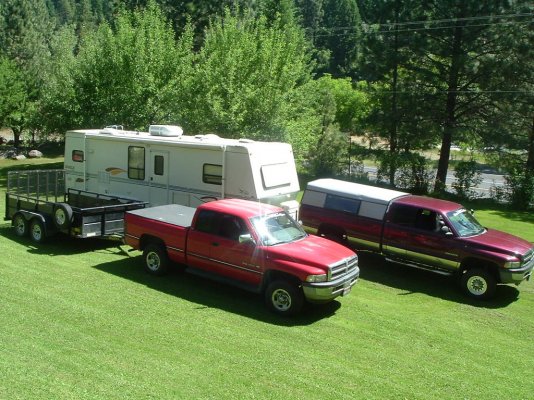3 Ladybugs
Member
- Joined
- Sep 27, 2015
- Posts
- 22
I am looking for more of a scientific answer. I married a scientist so it helps make my mind up when I see it. 
Also, is there an idiots guide to torque ratios, motors and towing capacity? When I go to Chevy or Ford's website I feel like it is all written in German! I just installed a german program on my son's computer and that was fun since I don't know any german!
However I digress. I don't understand all the options and what I would need for a given situation. Someone recently told us that when we go to get a TV we should call an RV dealer just to be sure it would work well together. Great idea, but I don't like relying on other people for something as important as the safety of my children.
Thank you for the help!
Also, is there an idiots guide to torque ratios, motors and towing capacity? When I go to Chevy or Ford's website I feel like it is all written in German! I just installed a german program on my son's computer and that was fun since I don't know any german!
However I digress. I don't understand all the options and what I would need for a given situation. Someone recently told us that when we go to get a TV we should call an RV dealer just to be sure it would work well together. Great idea, but I don't like relying on other people for something as important as the safety of my children.
Thank you for the help!

